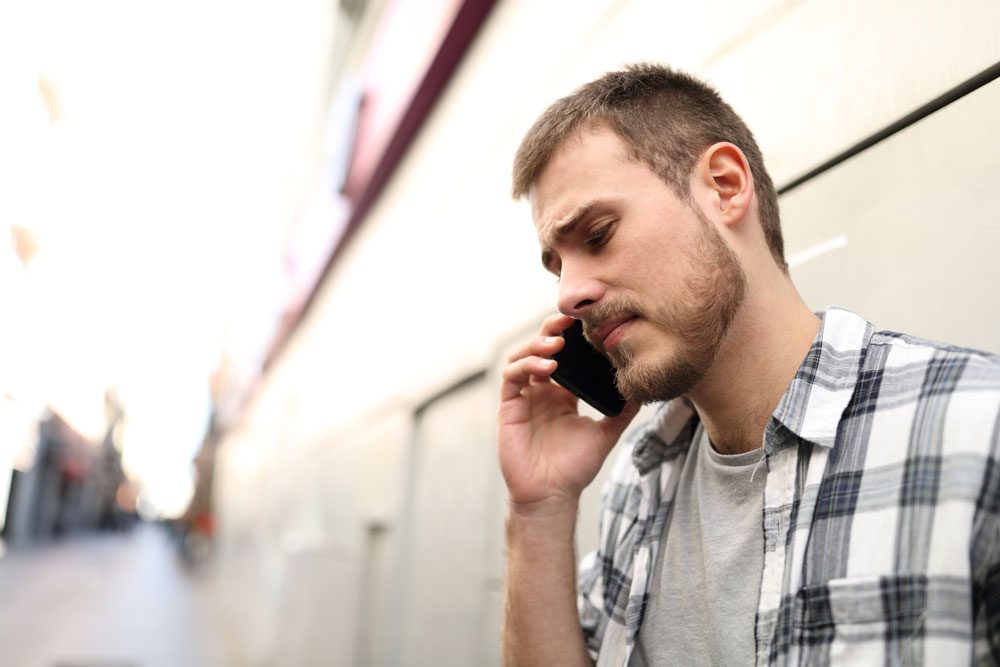If you have never contacted a crisis line, you might not be sure what to expect when you do need to reach out. At The Pavilion, in Williamsburg, Virginia, we would like to put your mind at ease, so that you will feel more comfortable if you ever need to reach out for help.
What is the Purpose of a Crisis Line?
A crisis line, such as the 988 Crisis Lifeline, exists to help people who are experiencing something really big and stressful. Often, this includes things like:
- Mental health concerns
- Abusive situations
- Addiction struggles
- Suicidal thoughts
- Self-harm
- Situations that could lead to hospitalization if something is not done urgently
988 is a universal number that works to get help from any phone in the United States. You can also access the chat features from the 988 website.
Questions You Might Be Asked
The people who are reaching out to a crisis line for help are often in a great deal of distress, so the crisis counselors are trained to help them feel less stressed and think through solutions they might have available to handle the situation. Before they can do that, however, the counselor must make sure that the person they are talking to is safe. Depending on what reason you give for reaching out, the crisis counselor might ask you if:
- You are thinking of killing yourself
- You have thought about hurting anyone else
- Has anyone been hurting you, or do you worry that someone is going to try to hurt you
Questions People Have About Crisis Lines
It is very common for people to be unsure how crisis lines work and for them to ask questions when they are talking to a crisis counselor. Some very common questions people have are:
- Is the crisis counselor a therapist? Typically, a crisis counselor has some training in mental health and crisis management, but they don’t always have a therapy license. They aren’t doing the job of a therapist, since they are just available to help with urgent situations and connecting people to more long-term support.
- Am I talking to a robot/AI? This question often comes up when someone is using the text or chat feature of a crisis line, which does not clearly communicate emotion or tone. Crisis lines use trained crisis counselors for all of their various communication methods, including chat and text.
- Will you call my loved one to check on them? Crisis lines are often willing to reach out to people at the request of their family or friends, but they may have a policy that they need to disclose to the person who it was that asked that they be called. This makes it easier for the person to trust that the crisis counselor is someone who is legitimately trying to help them and not a scammer or someone else who means them harm.
- Will the crisis line call the police? The answer to this question really depends on how your conversation goes. Crisis counselors generally prefer not to dispatch emergency services to a client’s home. When possible, they would rather work with the person to create a plan that keeps them safe by utilizing their friends, family, mental health providers, and mobile crisis, where it is available. There are times, however, when a caller is not able to agree to a safety plan or when they contact a crisis line after they have already begun a suicide attempt, so the crisis line might contact emergency services to help keep the person safe.
- Will the crisis line call Child Protective Services? Crisis lines are generally staffed by mandatory reporters, so if child abuse is disclosed during a conversation, the crisis counselor is typically legally obligated to make a report to child protective services. They will ask questions to help them determine if they need to make a report and to gather the information they need to get child protective services involved.
- Can I call the crisis line when I am bored or lonely? That’s not really a good use of the crisis line. Because they need to help people who are experiencing a crisis, they are likely to redirect you to other resources you have available to you, once they establish that you don’t need urgent help.
- What time does the crisis line close? Typically, crisis lines are available 24 hours per day, 365 days per year. If the line closes, it might actually be a warm line, which is usually not staffed by crisis counselors but by volunteers who may have lived experience with mental illness. There are warm lines in pretty much every state. These peer supports are usually trained in helping callers with daily stressors that don’t require hospitalization or other urgent interventions. A person who is considering therapy but isn’t at risk of hurting themselves or others might call a warm line to talk about the pros and cons of starting counseling.
At The Pavilion, we offer a wide range of treatment options for our patients, who are facing mental health and/or substance use disorders. Our staff offers them trauma-informed care from admission, through discharge, and beyond. We also strive to ensure that they have resources beyond our staff, so that they can choose to reach out for the support that works best for them.





